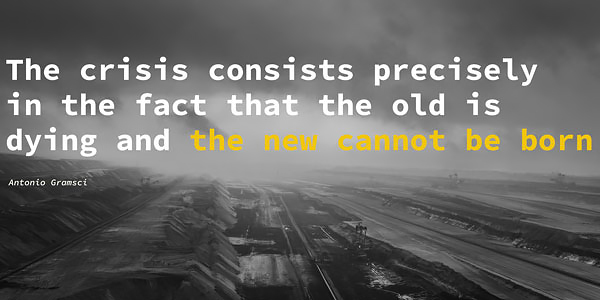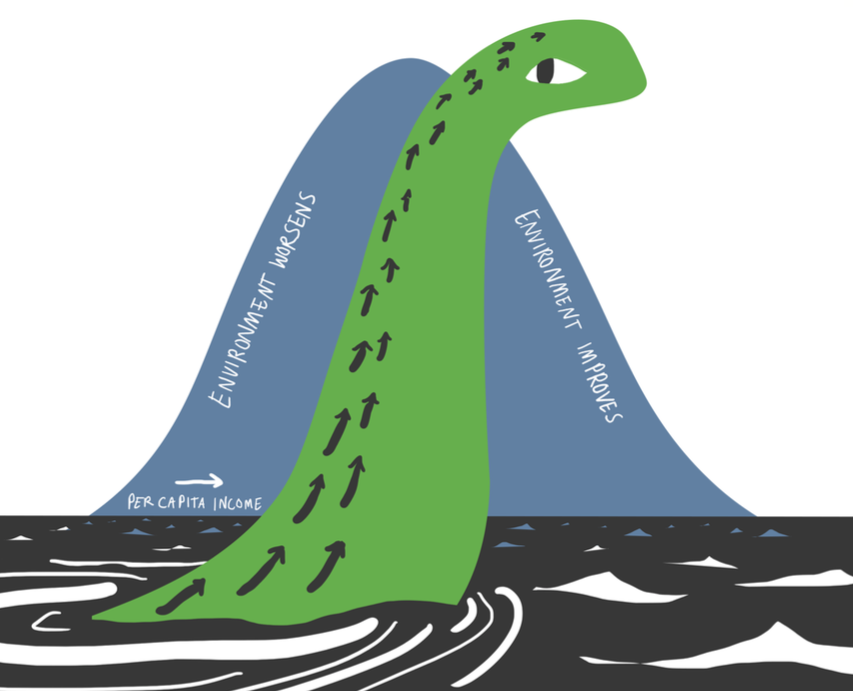Please find below a text published in The Guardian and also in several European Countries. More than 200 academics call on the European Union and its member states to plan for a post-growth future in which human and ecological wellbeing is prioritised over GDP. More than 78,000 people already singed the petition "Europe, It’s Time to End the Growth Dependency" This week, scientists, politicians, and policymakers are gathering in Brussels for a landmark conference. The aim of this event, organised by members of the European parliament from five different political groups, alongside trade unions and NGOs, is to explore possibilities for a “post-growth economy” in Europe.For the past seven decades, GDP growth has stood as the primary economic objective of European nations. But as our economies have grown, so has our negative impact on the environment. We are now exceeding the safe operating space for humanity on this planet, and there is no sign that economic activity is being decoupled from resource use or pollution at anything like the scale required. Today, solving social problems within European nations does not require more growth. It requires a fairer distribution of the income and wealth that we already have. Growth is also becoming harder to achieve due to declining productivity gains, market saturation, and ecological degradation. If current trends continue, there may be no growth at all in Europe within a decade. Right now the response is to try to fuel growth by issuing more debt, shredding environmental regulations, extending working hours, and cutting social protections. This aggressive pursuit of growth at all costs divides society, creates economic instability, and undermines democracy. Those in power have not been willing to engage with these issues, at least not until now. The European commission’s Beyond GDP project became GDP and Beyond. The official mantra remains growth — redressed as “sustainable”, “green”, or “inclusive” – but first and foremost, growth. Even the new UN sustainable development goals include the pursuit of economic growth as a policy goal for all countries, despite the fundamental contradiction between growth and sustainability. The good news is that within civil society and academia, a post-growth movement has been emerging. It goes by different names in different places: décroissance, Postwachstum, steady-state or doughnut economics, prosperity without growth, to name a few. Since 2008, regular degrowth conferenceshave gathered thousands of participants. A new global initiative, the Wellbeing Economies Alliance (or WE-All), is making connections between these movements, while a European research network has been developing new “ecological macroeconomic models”. Such work suggests that it’s possible to improve quality of life, restore the living world, reduce inequality, and provide meaningful jobs – all without the need for economic growth, provided we enact policies to overcome our current growth dependence. Some of the changes that have been proposed include limits on resource use, progressive taxation to stem the tide of rising inequality, and a gradual reduction in working time. Resource use could be curbed by introducing a carbon tax, and the revenue could be returned as a dividend for everyone or used to finance social programmes. Introducing both a basic and a maximum income would reduce inequality further, while helping to redistribute care work and reducing the power imbalances that undermine democracy. New technologies could be used to reduce working time and improve quality of life, instead of being used to lay off masses of workers and increase the profits of the privileged few. Given the risks at stake, it would be irresponsible for politicians and policymakers not to explore possibilities for a post-growth future. The conference happening in Brussels is a promising start, but much stronger commitments are needed. As a group of concerned social and natural scientists representing all Europe, we call on the European Union, its institutions, and member states to:

While the limits and failures of our current economic and political system are known and repetitively pointed out by degrowth research, we have a deficit in the area of strategic planning for transformative politics. What is missing are entry points for politicizing and changing social values, norms and institutions. To do this successfully, it is useful to detect how hegemonic values are embed...

If making the degrowth case was like baking a cake, disproving the plausibility of green growth would be the equivalent of turning the oven on. Decoupling is only “a myth” or “a fantasy,” some would say, a notorious fallacy that requires as much attention as the confabulations of Flat Earthers. And yet, faith in decoupling is strengthening in environmental agendas all around the world, includin...
Interview with Christine Bauhardt Prof. Dr. Christine Bauhardt is professor for Gender and Globalization at the Humboldt University in Berlin. Her main research interests are society-nature-relations and gender relations, feminist critique of the economy as well as migration and urban development. She took the time to answer our questions for the interview-series of the Stream towards Degro...